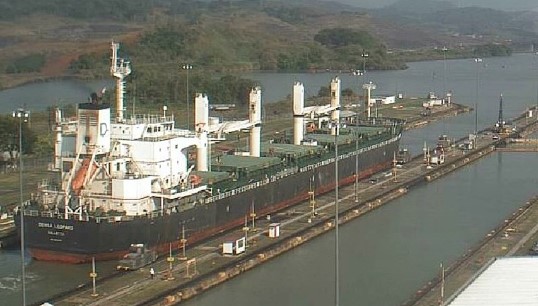
A seafarer who was trapped aboard his vessel during the crew change crisis has managed to return home, despite serious blocks put in place by both the charterer and flag state that delayed his return.
The charterer prevented him from disembarking earlier by declining to wait for a replacement crewmember who was undergoing a routine test for Covid-19, and the Maltese flag state authority also delayed him by refusing a safe manning dispensation for the ship.
'It isn't only Covid-19 getting in the way of crew changes,' said International Transport Workers' Federation (ITF) inspector Tommy Molloy, who worked to get the seafarer home. 'It is also a mixture of national authorities, red tape, charterers, some flag states, some ship owners, local officialdom, airlines and so on.
'A combination of these can be practically impossible to overcome. Those placing unnecessary hurdles in the way of overdue repatriations need to be identified and called out.'
The case of this Russian seafarer – a second engineer aboard the Densa Leopard – was reported on by Nautilus in September. Like thousands of other mariners during the crew change crisis he was forced to remain on board for months after his contract ended as his vessel went back and forth across the Indian Ocean.
The seafarer got in touch with Mr Molloy in August. Mr Molloy opened negotiations with Marlow Navigation, the crewing agency that had been attempting to repatriate him, and eventually contacted the vessel's flag state, Malta, for assistance.
'The flag state authority – Transport Malta – asked for a written statement from the seafarer requesting his repatriation. Once the statement had been provided nothing further was heard of from Transport Malta despite following up with emails,' Mr Molloy said.
'When the vessel returned to Sri Lanka Marlow Navigation had arranged a replacement, a Sri Lankan, but two days were needed for the result of a Covid test for the on-signer as per local regulations. The charterer decided they wouldn't wait that long, even though the seafarer had accommodated them by waiting six months beyond the end of his contract. They ordered the vessel to steam towards the Red Sea. Port State Control were asked to inspect the vessel in Sri Lanka but declined.
'We learned that the flag state had been contacted and had been asked if they would allow the second engineer to be put ashore in Sri Lanka without a reliever, as he was following ITF advice by no longer working. A dispensation was requested in respect of safe manning to the next port only, where another second engineer was ready to join. It seems Transport Malta refused on the grounds that even if he wasn't working, as long as his licence was on board with him, safe manning requirements were met. I requested clarification from Transport Malta to establish if this was really their position but again, they did not respond.'
Mr Molloy then sent a letter to the vessel's owner, Marinsa Denizcilik AS of Turkey, advising that Port State Control in the next port in Jordan would likely detain the vessel and as their borders were shut the company would be unlikely to get a replacement on board. As a result, the owners took the vessel off hire for two days to allow it to call in Egypt so that the seafarer could finally be relieved. He went home on 29 September, almost seven months after his contract finished.
Mr Molloy has been working in tandem with Marlow Navigation in trying to assist crew on several vessels which are under their crew management. While Mr Molloy is a vocal proponent of the ITF lashing campaign, and Marlow are among the companies which have legally challenged the implementation of the IBF/ITF Agreed 'Cargo Handling Clause', he says that in his opinion crew changes are much more likely to be realised when he works with the crewing agency to get seafarers home.
Tags
More articles
Union success in driving statutory recognition at Condor Ferries
The Guernsey-based ferry operator had snubbed a voluntary recognition agreement with the Union following employee anger over hefty cuts to wages and planned job cuts in the early stages of the Coronavirus pandemic.
Crew professionalism prevails in Pride of Hull fire emergency
Nautilus International has praised the professionalism of crew aboard the P&O North Sea Ferries vessel Pride of Hull after they safely dealt with a blaze on board.
